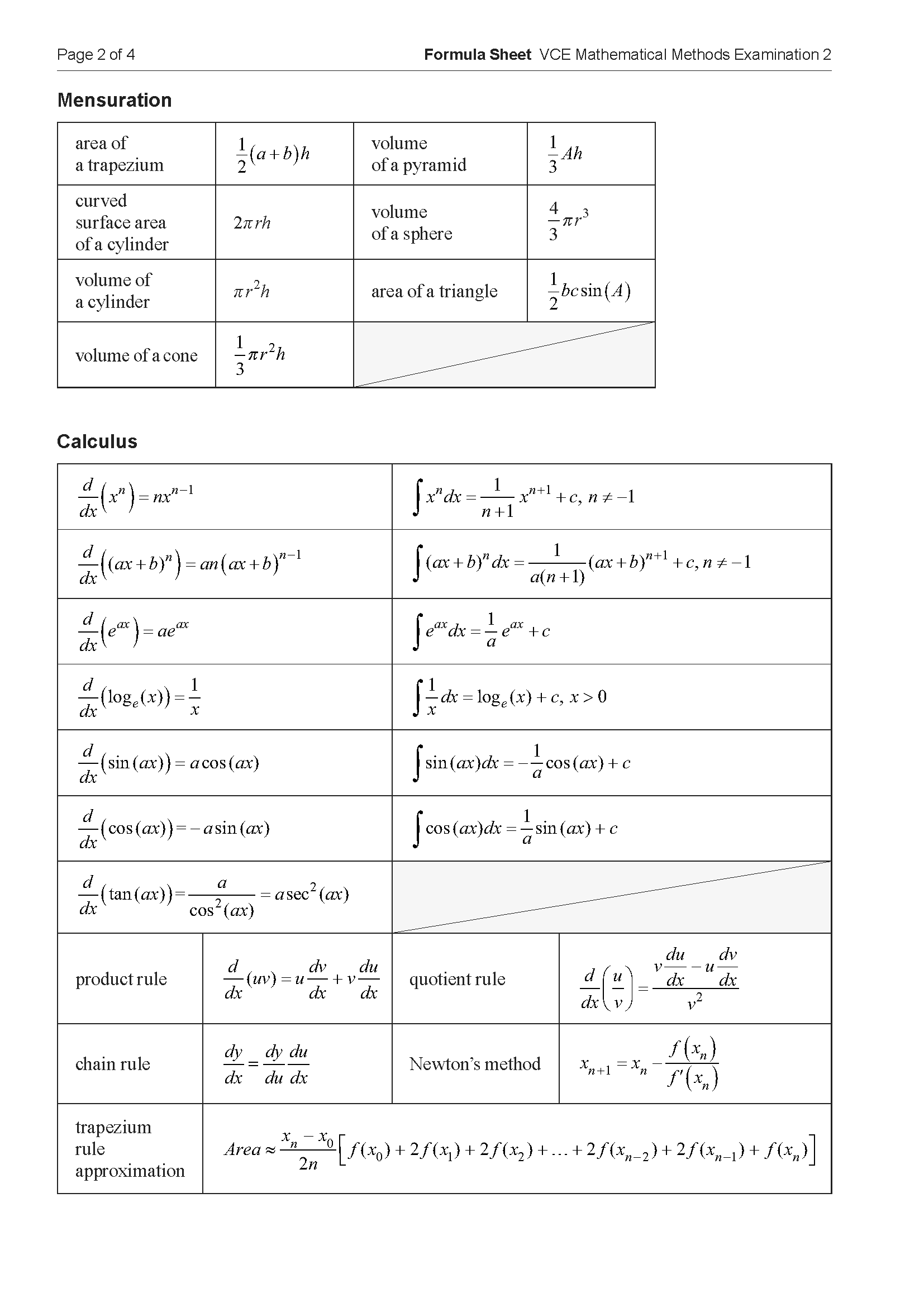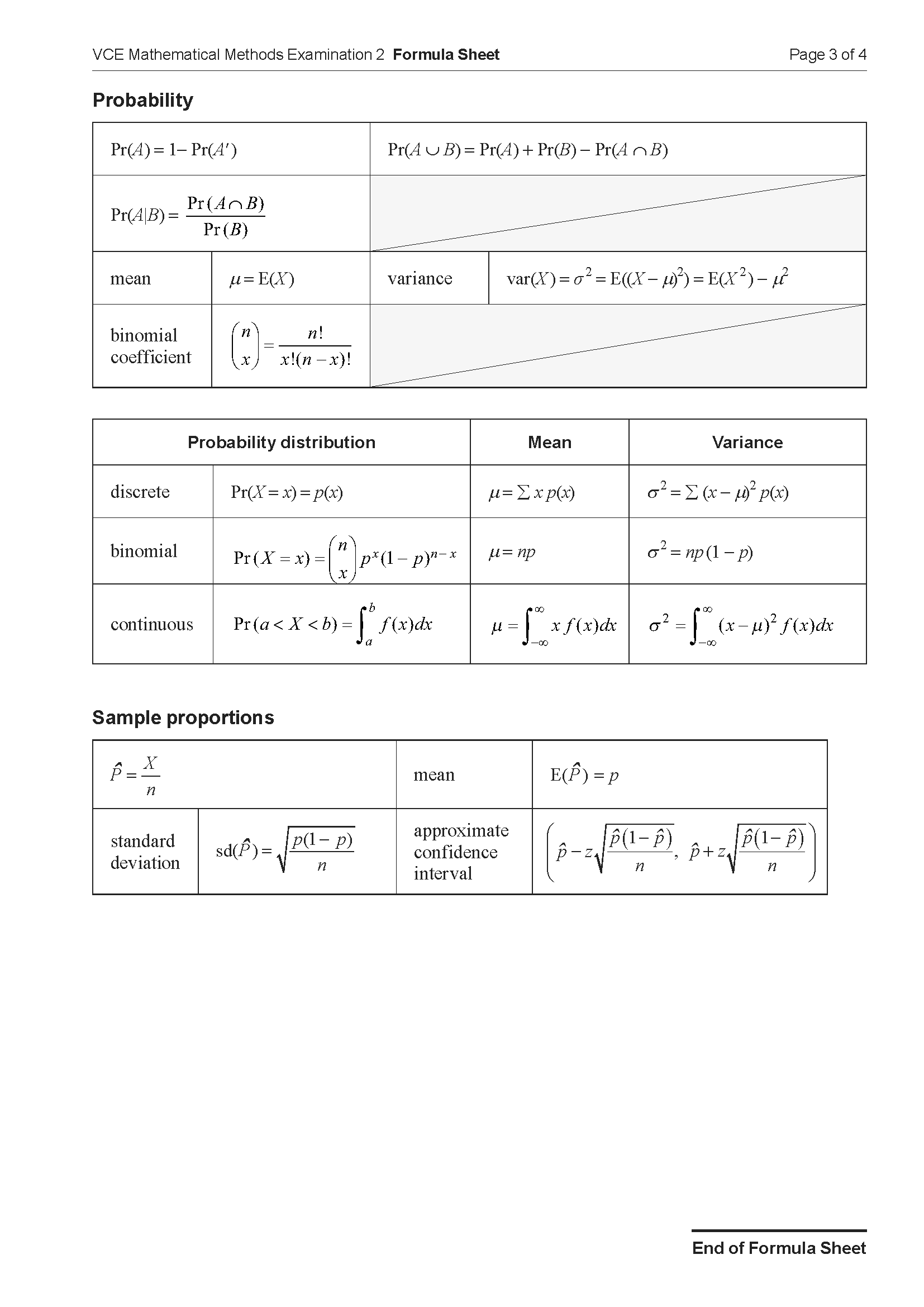2017 VCE Maths Methods Mini Test 9
Number of marks: 10
Reading time: 2 minutes
Writing time: 15 minutes
Section A – Calculator Allowed
Instructions
• Answer all questions in pencil on your Multiple-Choice Answer Sheet.
• Choose the response that is correct for the question.
• A correct answer scores 1; an incorrect answer scores 0.
• Marks will not be deducted for incorrect answers.
• No marks will be given if more than one answer is completed for any question.
• Unless otherwise indicated, the diagrams in this book are not drawn to scale.
For random samples of five Australians, \(\hat{P}\) is the random variable that represents the proportion who live in a capital city.
Given that \(\Pr(\hat{P}=0) = \frac{1}{243}\), then \(\Pr(\hat{P} > 0.6)\), correct to four decimal places, is
- A. 0.0453
- B. 0.3209
- C. 0.4609
- D. 0.5390
- E. 0.7901
The graph of a function \(f\), where \(f(-x) = f(x)\), is shown below.

The graph has \(x\)-intercepts at \((a, 0)\), \((b, 0)\), \((c, 0)\) and \((d, 0)\) only.
The area bound by the curve and the \(x\)-axis on the interval \([a, d]\) is
- A. \(\int_a^d f(x)dx\)
- B. \(\int_a^b f(x)dx - \int_b^c f(x)dx + \int_c^d f(x)dx\)
- C. \(2\int_a^b f(x)dx + \int_b^c f(x)dx\)
- D. \(2\int_a^b f(x)dx - 2\int_b^{b+c} f(x)dx\)
- E. \(\int_a^b f(x)dx + \int_c^b f(x)dx + \int_d^c f(x)dx\)
Let \(X\) be a discrete random variable with binomial distribution \(X \sim \text{Bi}(n, p)\). The mean and the standard deviation of this distribution are equal.
Given that \(0 < p < 1\), the smallest number of trials, \(n\), such that \(p \le 0.01\) is
- A. 37
- B. 49
- C. 98
- D. 99
- E. 101
A probability density function \(f\) is given by
\( f(x) = \begin{cases} \cos(x)+1 & k < x < k+1 \\ 0 & \text{elsewhere} \end{cases} \)
where \(0 < k < 2\).The value of \(k\) is
- A. 1
- B. \(\frac{3\pi-1}{2}\)
- C. \(\pi-1\)
- D. \(\frac{\pi-1}{2}\)
- E. \(\frac{\pi}{2}\)
The graphs of \(f: [0, \frac{\pi}{2}] \to R, f(x) = \cos(x)\) and \(g: [0, \frac{\pi}{2}] \to R, g(x) = \sqrt{3}\sin(x)\) are shown below.
The graphs intersect at \(B\).

The ratio of the area of the shaded region to the area of triangle \(OAB\) is
- A. \(9:8\)
- B. \(\sqrt{3}-1 : \frac{\sqrt{3}\pi}{8}\)
- C. \(8\sqrt{3}-3 : 3\pi\)
- D. \(\sqrt{3}-1 : \frac{\sqrt{3}\pi}{4}\)
- E. \(1 : \frac{\sqrt{3}\pi}{8}\)
End of Section A
Section B – No Calculator
Instructions
• Answer all questions in the spaces provided.
• Write your responses in English.
• In questions where a numerical answer is required, an exact value must be given unless otherwise specified.
• In questions where more than one mark is available, appropriate working must be shown.
• Unless otherwise indicated, the diagrams in this book are not drawn to scale.
For events \(A\) and \(B\) from a sample space, \(\Pr(A|B) = \frac{1}{5}\) and \(\Pr(B|A) = \frac{1}{4}\). Let \(\Pr(A \cap B) = p\).
a. Find \(\Pr(A)\) in terms of \(p\). 1 mark
b. Find \(\Pr(A' \cap B')\) in terms of \(p\). 2 marks
c. Given that \(\Pr(A \cup B) \le \frac{1}{5}\), state the largest possible interval for \(p\). 2 marks
End of examination questions
VCE is a registered trademark of the VCAA. The VCAA does not endorse or make any warranties regarding this study resource. Past VCE exams and related content can be accessed directly at www.vcaa.vic.edu.au

